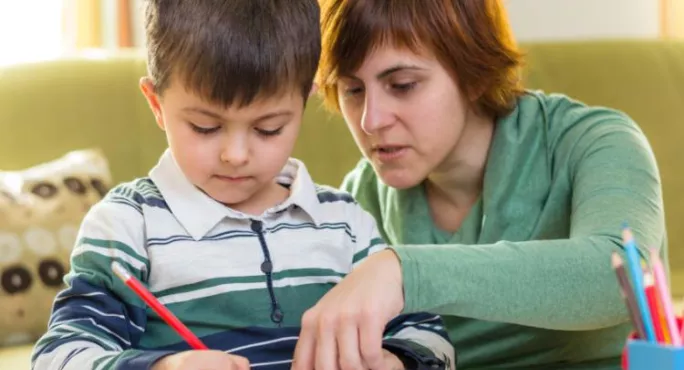Childcare providers and schools closed on Friday, until further notice, in an escalation of the government’s response to the coronavirus outbreak.
The decision to shut down early years providers may play an important role in slowing the spread of the virus, but it presents huge challenges to families across the country - challenges that may be longstanding, if the government fails to provide the right support now.
Early years settings play a vital role in levelling the playing field for children from disadvantaged backgrounds. We know that the development gap between poorer children and the rest is already more than four months by the age of 5.
In the face of prolonged closures, we could well see a widening of that gap.
Small businesses, on tight margins
Unlike schools, the vast majority of childcare providers exist in the private sector, reliant on a mix of fees paid by parents and government funding in order to provide free entitlements to children under the age of 5.
Childcare settings tend to be small businesses, running on tight margins. Even before this current crisis, settings across the country have been struggling to remain open in the face of rising costs, an unstable supply of workers, and often insufficient government funding.
For many of these childcare providers, the current crisis poses an existential threat.
The government has committed to continuing paying early years settings for the government-funded childcare they were offering before the Covid-19 outbreak, and has granted a 12-month business rates holiday for those settings who are subject to rates.
But it seems highly doubtful that these measures alone will be enough to enable many providers to continue to pay their bills and staff.
Not all childcare providers offer government-funded childcare. Those that don’t will miss out from the continuation of funding that’s been promised. One-in-10 private and voluntary childcare providers, and one-in-five childminders, do not currently offer the childcare entitlement of 30 hours per week for working parents. They are now immediately under threat.
Even for those childcare providers who do offer free entitlements, the funding accounts for only a proportion of their revenue, which will vary between providers.
This means that, even with the continuation of funding from the government, providers will be left without a significant chunk of their income, while incurring most of their costs. This is simply not sustainable.
The government must act now
These costs may be largely unavoidable in the short term, with the government prudently prioritising the care needs of the children of key workers, such as NHS staff.
No date has yet been given when schools and childcare providers might reopen. However, the government risks closing childcare providers permanently if it does not act fast with measures to guarantee their financial stability.
Meanwhile, childcare providers face an endless stream of practical issues in the coming weeks.
First, the government’s guidance about who counts as key workers remains unclear, leaving it to individual providers to make difficult decisions about which children they can accept or not.
Second, recent supermarket shortages of food and other basic provisions like nappies mean that childcare providers are struggling to offer children the basics. As with other service providers, childcare providers cannot operate unless supply chains run effectively.
The government must act now to give childcare providers the security afforded to schools.
Failure to get the right response in this critical period may mean that, when the education secretary announces that education settings are to open again, there may be few childcare providers left for families to return to.
Josh Cottell is a senior researcher at the Education Policy Institute
